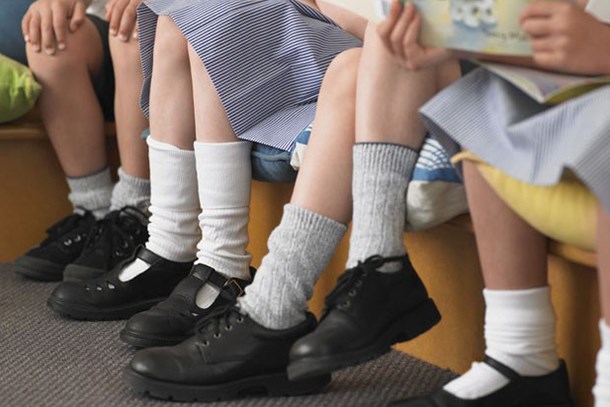
This week it is back to school and for some, starting for the first time. Either way children are required to transition from a safe, known environment to some form of unfamiliar territory.
As a parent and grandparent most of us travel the emotional path with them although the level of intensity differs with every family. Some families will have children who are excited and happy about going to a ‘big school’ and others may find it worrying.
In my case my children are all grown up. Nevertheless, I experience a similar sense of emotion with my grandchildren, albeit from a distance. In my role as a grandmother I have little control over the situation and endeavour to be there if needed. Having said this, I cannot help but wonder how my precious grandsons feel and what goes through their minds.
My youngest grandson begins secondary school this year and of course I care about how he is feeling. He is a clever, sensitive, intuitive young boy and like many young children in today’s world, doesn’t miss much about events that happen around him. He hasn’t said a great deal to me about the transition to his new school yet although I know conversations have transpired with his parents.
It is a big adjustment and change to their routine. They leave primary school as the senior kids and begin secondary school as the new juniors. They move from the familiar to the unknown with a different routine. There is a fair amount to cope with for both parent and child.
A child who is normally confident can become shy in their first year. We may think they are grown up ready for the big school and will deal with it, yet they are still emotionally attached to their primary school days.
It is also about them meeting new peers, making new friends and establishing their position within a new peer group, all of which can make them feel anxious. We cannot expect them to adjust overnight and parents need to show they are in control, calm, patient and supportive.
Parents also undergo changes in their role and need to consciously adapt. I find this in the main, specifically with mothers and primary caregivers. Their emotions have been centred around the primary school relationship which is about to end and the beginning of a different sort of relationship with their child’s secondary school. Which is why it’s important to be mindful of how they manage themselves. Children sense their parent’s emotions even if unspoken.
Don’t be surprised, nor hurt if your child does not want you to be as visible at secondary school as you were during primary years. It is their way of developing a growing independence but it is good to remember they still need your support outside of school.
This is where close friends, grandparents, family members and other parents play an important role in helping children and parents to transition smoothly into a new routine. Communication and understanding is important.
Some practical ideas to help with the transition to high school:
- Talk about the changes with your child well in advance, ask what they are looking forward to and what they are worried about.
- Discuss strategies with them on how to address issues of concern.
- Don’t leave things to the last minute on the day they start school.
- Try to have an adult home for the first few weeks after school to be there for them.
- Utilise the school’s website and encourage your children to find out about the school and its layout.
- Introduce yourself as early as possible to their main teacher who is responsible for your child’s overall care.
- Encourage independence and include them in the decision making.
- Make your home as comfortable as possible for study time, away from distractions such at the television and mobile phone as they need to adjust to new teaching and assessment styles.
- Help them become more responsible as you may not know their teachers and rely on your children to bring home messages.
- Talk about making new friends and discuss how they did it as well as make time for them to see old friends.
- Encourage them to make the first move e.g. “do you want lunch?”, to smile, look people in the eye and make their body language open
- Talk about new school nerves, not to suffer in silence and to talk about bullying.
- Encourage them to ask if they can’t find their way around.
For parents, caregivers and children it is normal to have mixed feelings, ups and downs. Some may find things a little difficult at first. This is all quite natural and normally settles down during the year. Apart from positive influences around you, your support has the strongest and longer-lasting effect.
Children are more capable than we take them for and it won’t be long before you can reflect on what has been achieved.
Acknowledgments: raisingchildren.net.au, madeformums.com
Ruth Greening holds a Bachelor of Arts degree majoring in Psychology & Philosophy. Before retirement, she worked for over 40 years in the corporate world in Melbourne and Brisbane and progressed into senior management positions and project roles for both private industry and government.
In her 70th decade, she continues in casual roles as a freelance writer, model, and actor participating in small movies, TV commercials and User Generated Content.
As a grandmother, she is known as Nanny Babe to her grandchildren and writes from a Baby Boomer perspective on her blog www.nannybabe.com. An avid crafter Ruth actively participates in sewing, crocheting and knitting.
While she continues to pursue her artistic passions, Ruth is dedicated to maintaining her health and fitness as she ages by attending the gym, dancing and walking and thrives on mentoring others.
Connect with Ruth or our moniker Nanny Babe; nannybabegengp.blogspot.com.au/


Leave a Reply